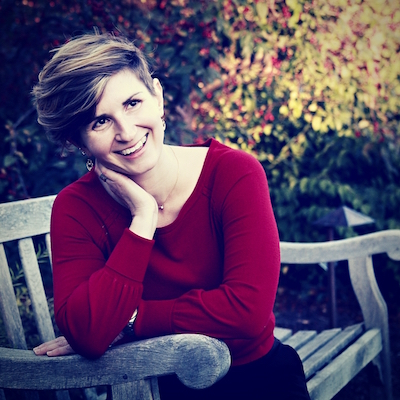
Sarah K. Stephens
Contributor
So, I was riding in the car this week, listening to the pop music station with my teen girls in tow as we ran errands. Driving along, a new song came on the radio—Daya’s Sit Still, Look Pretty—and I have to admit, I was maddened and disappointed by the lyrics.
I’ve pasted a few of the main hooks below so you can see for yourself:
Could dress up, to get love
But guess what?
I’m never gonna be that girl
Who’s living in a Barbie world
Could wake up in make up and play dumb
Pretending that I need a boy
Who’s gonna treat me like a toyI know the other girlies wanna wear expensive things like diamond rings
But I don’t wanna be the puppet that you’re playing on a string
This queen don’t need a king
Oh I don’t know what you’ve been told
But this gal right here’s gonna rule the world
Yeah, that is where I’m gonna be because I wanna be
No, I don’t wanna sit still, look pretty

Photograph via Dakota Roos
The reason I was so negatively affected by these lyrics is simple: This song is masquerading as revolutionary when in fact it is reductive. Sure, there are many other songs available for my daughters to listen to that are staunchly misogynistic, but this song, and those similar in tone and content, I would argue are more egregious. Why?
Because they are subtle and insidious in their transgressions, while superficially offering a mouthpiece for ‘feminism’ with a lower case ‘f.’
My daughters and other young women and men can readily dismiss songs that refer to women as “bitches” or reference “pussy” in the chorus. Songs like Daya’s Sit Still, Look Pretty (or Meghan Trainor’s All About That Bass, Taylor Swift’s You Belong With Me—the list goes on and on) use their lyrics to supposedly proclaim an inclusive message of femininity to their listeners: You don’t need to be thin, or enjoy clothes, or make-up, or high heels to be feminine.
But in the next line (or sometimes in the same line) these songs go on to shame girls and women who enjoy dressing up, or wearing jewelry, or doing their hair. In their attempt to break the traditional molds of femininity, these artists are just creating new barriers for young women to conform to: In order for a woman to be intelligent and powerful, she must reject any enjoyment she experiences from focusing on her external self.
Photograph via Dakota Roos

Which, we all know, is ridiculous. Any one of us can point to women who are intelligent and powerful AND also enjoy expressing themselves through fashion and beauty stylings, just as all of us can identify women who are intelligent and powerful AND have no real interest in cultivating their external appearance. My two daughters represent these opposite views clearly in their own preferences: one thoroughly enjoys selecting her outfits, experimenting with her hair and make-up, while my other daughter seeks comfort in her clothing and finds any attention to her appearance beyond cleanliness unnecessary.
The songs I referenced earlier seem to encourage me and all their other listeners to see one of my daughters as better than the other. Or, if we expand the scope of their message, to claim that one group of women is more “honest” or “real” than the other. Is this really true?
No, of course not. And let’s not forget all of the women in between these two ends, who represent the diversity of femininity.
Because that’s what femininity is — Diverse!
No two women are alike in their complex combination of desires, preferences, hopes, and histories that make them uniquely themselves.
Any message, either traditional or anti-establishment, that attempts to promote one form of womanhood as ideal while also attacking or criticizing other forms is harmful to the cause of achieving equality for women.
The YA author, Claudia Gray, wrote a wonderful piece about this very issue on her blog, entitled “I’m Not Like The Other Girls”, where her main message is that, to quote from her post:
“You ARE like the other girls, like we all are, in that none of us came off some Female Assembly Line. We’re all individuals. We should all get to express it without being judged – either by pop culture or by ourselves.”
And, to add one more choice morsel from her blog:
“There are as many ways to be “girly” as there are girls in this world.”
Until we learn to embrace the broad spectrum of what it means to be a woman in this world, and stop attacking each other for the simple act of expressing what we enjoy, we cannot truly achieve the fundamental act of seeing women as human.
There is no ‘right’ way to be a woman, but there is your way. And your way. And her way. And my way.
And we are all ‘right.’
More About Sarah K. Stephens: Sarah K. Stephens earned her Doctorate in Developmental Psychology and teaches a variety of human development courses as a lecturer at Penn State University. Although Fall and Spring find her in the classroom, she remains a writer year-round. Her short stories have appeared in Five on the Fifth, The Voices Project, The Indianola Review, and the Manawaker Studio’s Flash Fiction Podcast. Her debut novel, A Flash of Red, will be released in Winter 2016 by Pandamoon Publishing. Follow her on Twitter or Facebook and read more of her writing on her blog.






